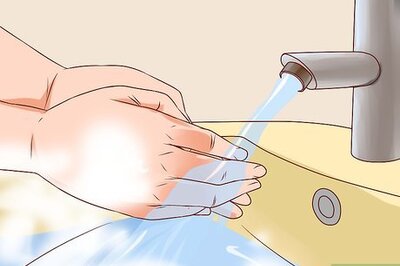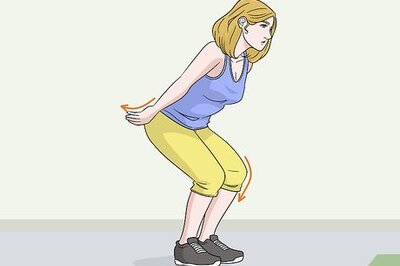
views
CHENNAI: Three-year-old Kumar* was a recent victim of sexual assault. Police investigations report that he was suffocated to death after being sexually assaulted by Ramesh (25), a neighbour whom the child visited in his village in Tirupur district. Last year, Arokiasamy (54), a headmaster of a government high school at Podhumbu near Madurai was arrested for alleged sexual abuse of girl students. Similarly, 65-year-old British national Jonathan Robinson was held for sexual abuse of a teenage boy and two teachers of a matriculation school in Kallakurichi, Villupuram district were arrested for sexually assaulting a four-year-old girl. British national Patrick Mathews allegedly sexually abused at least nine students of a popular school in Chennai. Sadly, many such crimes often go unreported. To tackle such offences, both Houses of Parliament have recently passed the Protection of Children from Sexual Offences Act, 2012 which deals with the heinous crime of sexual assault on children. Presently, sexual offences are covered under various sections of the Indian Penal Code (IPC), a colonial law in use since 1860 which does not specifically detail sexual offences against children.Importantly, the IPC also does not distinguish between adult and child victims. To help protect children from sexual assault, harassment and exploitation as in the case of child pornography, the ‘Protection of Children from Sexual Offences Act, 2012 (PCSOA) has for the first time clearly defined these offences. Importantly, this law is gender neutral and punishes offences against both boys and girls.The Act provides for stringent punishments, which have been graded as per the gravity of the offence. The punishments range from simple to rigorous imprisonment of varying periods. There is also provision for a fine, which will be decided by the Court based on the facts of the case.The PCSOA defines sexual assault as any act done with sexual intent including touching the vagina, penis, anus or breast of a child or making the child touch sexual organs of any person. Sexual assault covers physical contact but does not include the act of ‘penetration.’ The punishment for acts covered under sexual assault ranges from simple to rigorous imprisonment for a term not less than three years. However, this could extend to five years and shall also be liable to a fine.An act of Penetrative Sexual Assault (PSA) is defined as penetration of the penis to any extent into the vagina, mouth, urethra or anus of a child or makes the child to do so with him or any other person. Insertion of any object or a part of the body -not being the penis- into orifices also constitute the offence of PSA besides placing mouth over body parts including penis and vagina. The punishment for this shall not be less than seven years imprisonment which could extend to life imprisonment besides a fine.An offence is treated as “aggravated” when committed by a person in a position of trust or authority of child such as a member of security forces, police officer or public servant. This bracket covers staffers of educational and religious institutions, hospitals, and any relative of a child. The punishment for aggravated penetrative sexual assault shall not be less than ten years but could also extend to imprisonment for life besides a fine. The punishment for aggravated [non-penetrative] sexual assault shall be imprisonment for a minimum period of five years and a maximum of seven years and shall also be liable for a fine.The law also effectively deals with sexual harassment. PCSOA defines sexual harassment as uttering any word, making any sound or any gesture, or exhibition of any object or part of the body with the intention that such shall be heard or seen by a child. Punishment for this is imprisonment for a minimum of three years.




















Comments
0 comment